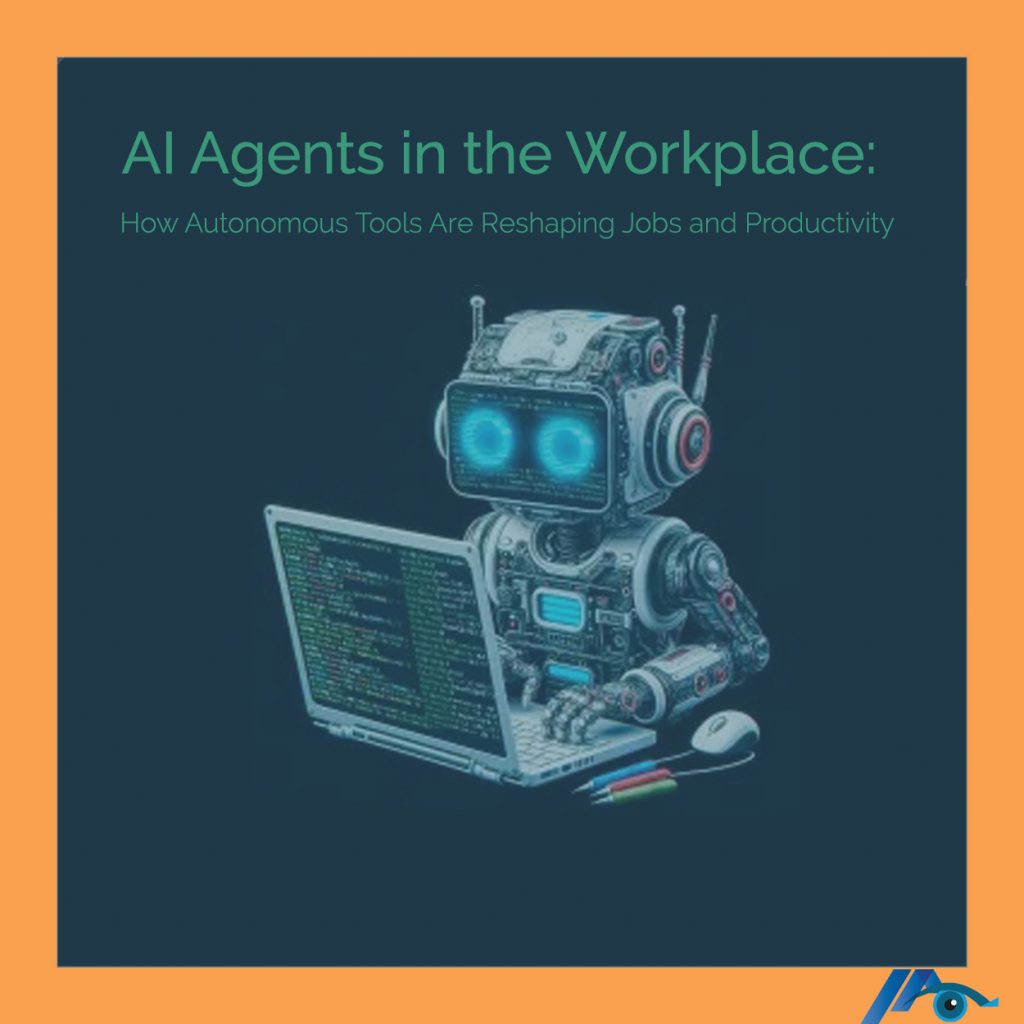
Artificial Intelligence is no longer a distant, futuristic concept—it’s becoming a trusted colleague. From customer service bots to smart document editors and decision-making assistants, AI agents are transforming how work is done across industries. In 2025, we’re seeing a new wave of intelligent, autonomous agents integrated into daily workflows, profoundly altering the workplace landscape.
What Are AI Agents?
AI agents are systems powered by machine learning, natural language processing, and large language models that can autonomously perform tasks, make decisions, or assist humans in real time. They go beyond simple automation—these agents can learn from interactions, adapt to user preferences, and handle complex instructions without human oversight.
For example, OpenAI’s custom GPTs, Microsoft’s Copilot embedded in Office tools, and Google’s Gemini are not just tools but collaborative digital coworkers. They can draft emails, summarize reports, schedule meetings, generate insights from datasets, and even write code—often faster and more efficiently than their human counterparts.
Redefining Productivity
AI agents are revolutionizing productivity by removing repetitive, low-value tasks from employees’ workloads. Instead of spending hours sorting data, writing first drafts, or managing inboxes, workers can delegate these tasks to AI.
According to a 2025 survey by McKinsey, companies using AI agents in administrative tasks reported a 32% increase in productivity and a reduction in burnout among staff. Teams now focus more on strategic thinking, creativity, and human-centric problem solving.
New Skills, New Roles
As AI takes over routine tasks, it doesn’t eliminate jobs—it changes them. There’s a growing demand for roles like:
Prompt Engineers – Experts who design effective queries for AI agents.
AI Trainers – Professionals who help improve agent accuracy through human feedback.
AI Ethics Officers – Responsible for ensuring that agents follow ethical guidelines and avoid bias.
Companies are also investing in reskilling programs to help employees adapt. Instead of fearing AI, workers are learning to collaborate with it.
Challenges and Concerns
Despite the clear benefits, integrating AI agents into the workplace is not without risks.
1. Data Security and Privacy: AI agents require access to sensitive information. Without strict data governance, there’s a risk of leaks, unauthorized access, or compliance violations.
2. Dependence on AI: Relying too heavily on AI can lead to skill degradation or overconfidence in its outputs. Human oversight remains crucial.
3. Bias and Fairness: AI agents trained on biased data may make flawed decisions—especially in areas like recruitment, legal writing, or financial predictions.
To address these concerns, companies must set boundaries, ensure transparency, and continuously monitor AI behavior.
Real-World Applications
HR & Recruitment: AI agents now screen resumes, schedule interviews, and even conduct preliminary interviews using conversational AI.
Customer Service: Intelligent chatbots provide 24/7 support, escalate complex queries to humans, and even analyze customer sentiment.
Software Development: Tools like GitHub Copilot suggest code in real time, debug errors, and explain code snippets in natural language.
Healthcare: AI agents assist in patient intake, appointment scheduling, and basic diagnostics.
These use cases show how AI agents are amplifying human capabilities, not replacing them.
Looking Ahead
By 2030, AI agents are expected to be integral to nearly every white-collar job. Rather than working alone, professionals will collaborate with AI tools that anticipate needs, complete tasks, and offer insights.
But success depends on balanced integration. Businesses must ensure that AI serves humans—not the other way around. Training, regulation, and ethical oversight will be key in shaping a future where AI agents are helpful, not harmful.
Conclusion
AI agents are not just tools—they’re becoming teammates. In the modern workplace, they streamline processes, elevate productivity, and unlock new potential. As long as we approach their use thoughtfully, they offer one of the most promising paths to a more efficient, empowered, and human-centered future of work.
Miracle technologies is a comprehensive NYC based Managed IT Services for Business IT Infrastructures. Our platform is built upon years of unmatched experience at AT&T Labs Research and renowned Wall Street MSPs. We offers cloud support, data center support, C suite services, backbone servers support, security servers, 24/7 managed IT support and Business Continuity/Disaster Recovery.